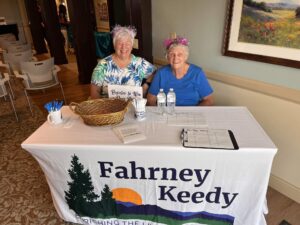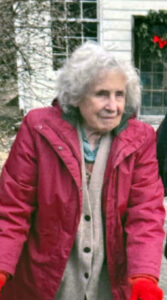As we close out Women’s History Month, we’re honoring the remarkable journey of Elizabeth Reeder, an Independent Living resident and member of the Board of Trustees at Fahrney Keedy. Her story is one of determination, advocacy, and breaking barriers, all while maintaining her devotion as a mother, sister, and friend to many.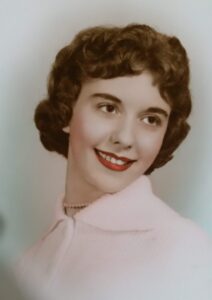
Elizabeth’s path began in nursing, but destiny had more in store for her. She graduated from nursing school and built a career accordingly, but some chance experiences soon led her to an unexpected yet profoundly impactful direction.
Her advocacy journey started when she and fellow members of the Women’s Club in Mechanicsburg, PA, read a newspaper headline about a local nursing home closing due to deplorable conditions. She called the Secretary of Health, offering her and her fellow nurses’ volunteer services. What she witnessed was heartbreaking and infuriating, igniting a passion that would drive her career forward.
“We just couldn’t believe this was happening in our very own community,” she shares, still frustrated by the memory.
“I founded CCNHR (Community Concern for Nursing Home Residents), which became a state and then national program. That was in 1976,” she recalls, noting that this timed perfectly along with her work as a consultant for the Pennsylvania Department of Health.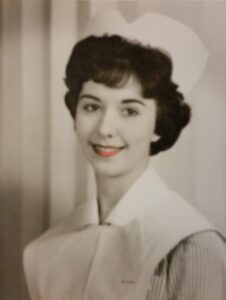
“I went from not knowing anything about an issue to getting appointed to the Nursing Home Administrators Board, and all kinds of things! I started to realize ‘Gee, I better learn what this is all about’ so I went back to Penn State University and majored in Political Science with an emphasis on aging. At the time, the school didn’t have courses on aging, and someone at the University said ‘Would you be willing to speak to the Dean and develop a program?’, and I said sure!” Her studies lead to her graduating Summa Cum Laude.
Her work led her to the campaign of Pennsylvania Governor Dick Thornburgh, who later appointed her as the first Director of the Bureau of Advocacy for the Department of Aging in 1978. As part of her role, she was invited to speak at a union convention in Philadelphia. There, the president of the National Union of Hospital and Health Care Employees, Henry Nicholas, saw her potential and offered her a role as a legislative representative in Washington, D.C.
This began her important work with The AFL-CIO (American Federation of Labor and Congress of Industrial Organizations), and Elizabeth became one of only two women legislative directors at the time. Between the two, she was soon chosen to attend meetings at the White House under President Reagan’s administration.
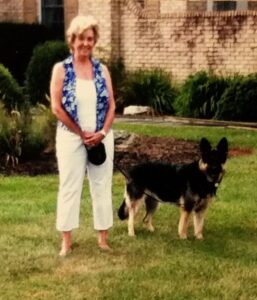 Noting the way her life’s work began to change course, Elizabeth shares, “What I say to people is, sometimes opportunities come to you that you have never planned for or thought about. Take the opportunity!”
Noting the way her life’s work began to change course, Elizabeth shares, “What I say to people is, sometimes opportunities come to you that you have never planned for or thought about. Take the opportunity!”
Navigating a male-dominated world was not without challenges.
“As a nursing student, we had to be subservient to doctors. We had to stand up if they came into any room, any elevator, etc. even sometimes having to step out and make room for a man in leadership.” She faced much discrimination, and noticeable levels of inappropriateness from men in power. This certainly didn’t stop as she left the world of nursing. Navigating Washington, D.C. during such different times [compared to today] left no shortage of stories.
Pushing on and working hard despite such adversity was the plan, though.
Elizabeth notes how she’s met numerous dignitaries, including Presidents Jimmy Carter, George H.W. Bush, and Bill Clinton, and even participated in Clinton’s inaugural parade with her daughters on the family float. President Reagan even appointed her as Vice Chair of the President’s Committee on Employing the Handicapped (PCEH). She also had the privilege of attending events with Queen Elizabeth and Princess Diana during their visits to our nation’s capital.
“She was even more beautiful in person,” she recalls about the late Princess.
In an infamous and rather startling moment, Elizabeth was even present at an AFL-CIO event at the Capital Hilton Hotel when President Reagan was shot by a would-be assassin in 1981.
Pausing a bit from talking about her brushes with history, we asked Elizabeth to cite her inspiration. After only a moment of reflection, her thoughts shifted towards her late sister, Lillian McHugh.
“My sister, who was 10 years older than me, she went to nursing school, and I once wrote her a letter that told her I was going to be a nurse because she was a nurse. She was just that inspirational to me,” she shares while still being able to picture this letter complete with her childlike handwriting.
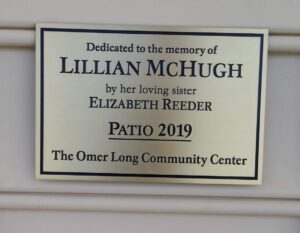 In 2019, she honored Lillian’s memory with a plaque here on Fahrney Keedy’s Omer Long Community Center patio.
In 2019, she honored Lillian’s memory with a plaque here on Fahrney Keedy’s Omer Long Community Center patio.
A song she wrote for her sister, “My Angel’s In The Rainbow,” can also be found here.
Elizabeth’s advice to women navigating today’s workforce is invaluable:
“Women are brought up to smile and be courteous, but it can get you into a lot of trouble. If you’re not as assertive as men can be naturally, you can get lost in the shuffle. Don’t be impressed or intimidated just because of someone’s title. Be confident in who you are. Follow your dreams, but don’t ignore opportunities that may take your life in a different direction – that can help you grow in ways you never expected!”
As for the legacy she hopes to leave behind?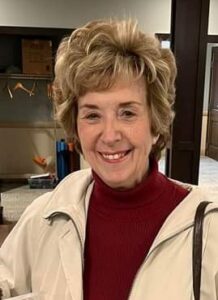
“I hope that they remember to be kind to the elderly. Be respectful of the elderly. Pay attention to what’s going on in your community. I hope they remember the kindness that I’ve tried to give to people. I can be very assertive when I’m fighting for somebody else, not quite myself all the time.”
Elizabeth Reeder’s journey is a testament to the power of taking chances and following your heart. As Women’s History Month draws to a close, we celebrate her story and the countless other women who have shattered glass ceilings and paved the way for future generations. Without a doubt, we are a better community because she calls us “home.”
